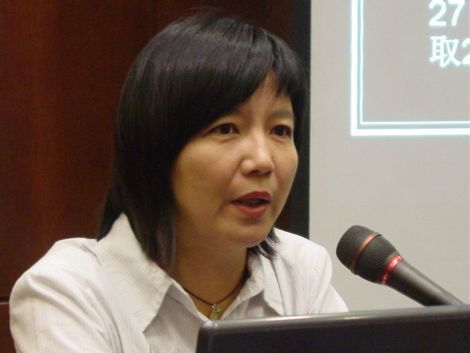By Jacky Lee – A noxious combination of state power, keen commercial competition and media mismanagement have spawned endemic corruption in China’s news media in recent years, Fudan University journalism professor Lu Ye (陆晔) told an audience at the University of Hong Kong Friday. While corruption occurs across the board, said Lu, it is particularly prevalent at government-run media, which can use the authority vested in them by administrative offices to extort money from local governments and private enterprises.
Professor Lu called this corruption “rent-seeking,” or quanli xunzu (权力寻租).

Lu’s talk, “Media Corruption in China,” was hosted by the China Media Project of the Journalism & Media Studies Centre, where Lu is currently a visiting fellow.
Stiffer competition, felt most keenly by government-run media, is another contributor to corruption, said Lu. While government funding has been progressively pulled from official media, they have not raised their market competitiveness or found their own audiences. “These publications cannot compete with commercial publications, and subsidies aren’t sufficient to ensure their survival in a market economy,” Lu said.
The way out for many of these media is abuse of their administrative power to force cash payments or advertising buys.
The problem of media corruption in China became international news in January this year with the beating death of Lan Chengzhang (兰成长), a reporter for China Trade News. The newspaper, published by the China Council for the Promotion of International Trade (CCPIT), a national organization representing the economic and trade sectors in China, had hired Lan on a temporary basis. Lan was killed as he tried to extort money from an illegal coal mine in Shanxi by threatening to expose its operations.
As a newspaper backed by an official organization, China Trade News had sufficient authority and social status to twist the arms of local officials and businesses, Lu said.
Internal management mechanisms at media are also an important factor in media corruption, according to Lu. “This problem is less serious at larger and more newly-established publications that are commercially oriented. Larger publications generally have better income and management,” said Lu.
Lu said low pay in the media sector was a further problem, encouraging journalists to view “red envelopes” and other perks as routine and deserved.
Every year, journalism students at Fudan organize an academic seminar on media, but the press environment in China presents them with unique challenges as they try to get the word out, said Lu. Reporters express and interest in covering the event, but always want to know whether they the department will provide “transportation subsidies”, a code word for cash payments for participation.
Summing up her feelings about the issue of media corruption, Lu suggested resolving the issue would necessitate deeper institutional change. “I am quite pessimistic about the situation [of media corruption in China],” said Lu. “It’s something that can’t be resolved simply by improving management and ethical standards.”




















